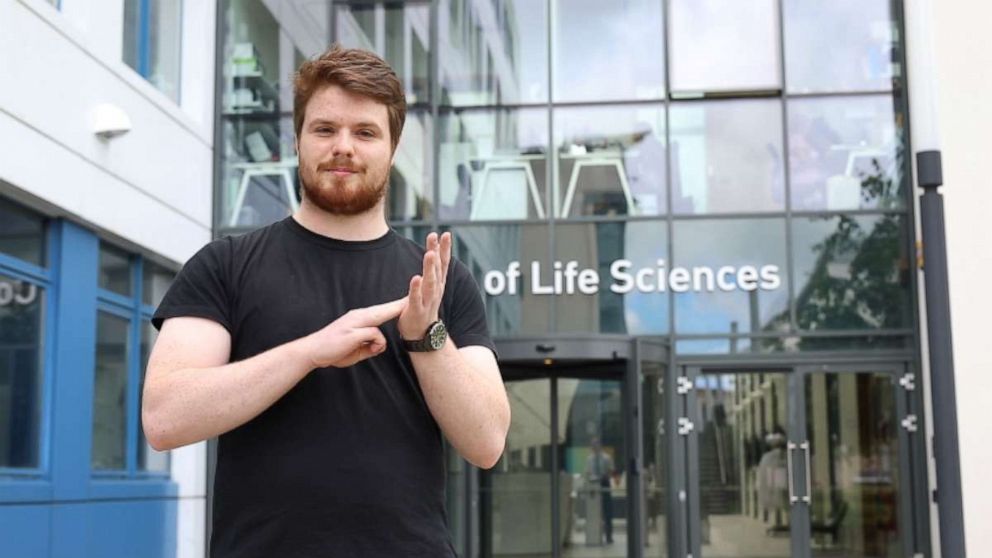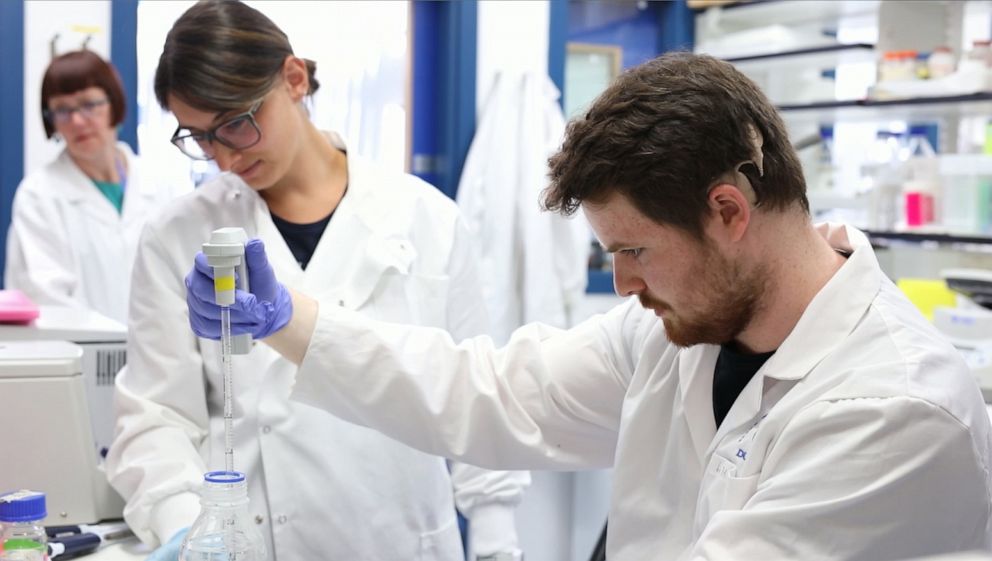Deaf student creates more than 100 new signs for scientific terms
Liam McMulkin embarked on the project to help himself and future students.
When Liam Mcmulkin began his studies at Scotland’s University of Dundee, he quickly realized a glaring oversight not only in the program, but in British Sign Language in general: signs for science.
As he delved into more complex topics, and learned words such as phosphorylation or oxidation, the signs that were used to communicate the lessons often took up an inefficient amount of time because they had to be spelled out with each letter, he said.
“It’s not easy to convey complex processes with a few hand gestures,” he told ABC News via email on Monday.
Mcmulkin , who is deaf, took it upon himself to fix the problem.

"With terms about developmental biology spring up, I made a conscious decision to start creating signs that I thought were required," he said.
He has since created more than 100 new signs to use in his science courses.
Mcmulkin said creating each sign requires following the grammar structure, hand shape and movement of British Sign Language. Then each term has to be agreed upon by a forum of sign linguists, deaf people and deaf specialists.
It took him about two months.
The University of Dundee, located in the city of the same name, plans to continue using the new signs for years to come.
“Liam’s effort towards creating new signs is crucial to the future of the life sciences,” Dr. Marios Stavridis, the head of the biological sciences at the University of Dundee and Mcmulkin ’s supervisor, told ABC News in a statement.

"If you imagine having to finger spell highly technical terms whilst sitting in a lecture or having a quick conversation with a colleague, you can appreciate how taxing and difficult it has been for Liam."
Simon Harvey, a spokesman for the official site for British Sign Language’s online courses, said new terms become part of the language once they are regularly used.
“If these scientific vocabulary signs have begun to be used by others around the country then they will begin to be recognised as BSL signs,” he said.
Mcmulkin , now in his third year at the school, hopes to continue his endeavor, which was first reported by the BBC, and help more students as they make their way through complex science courses.




